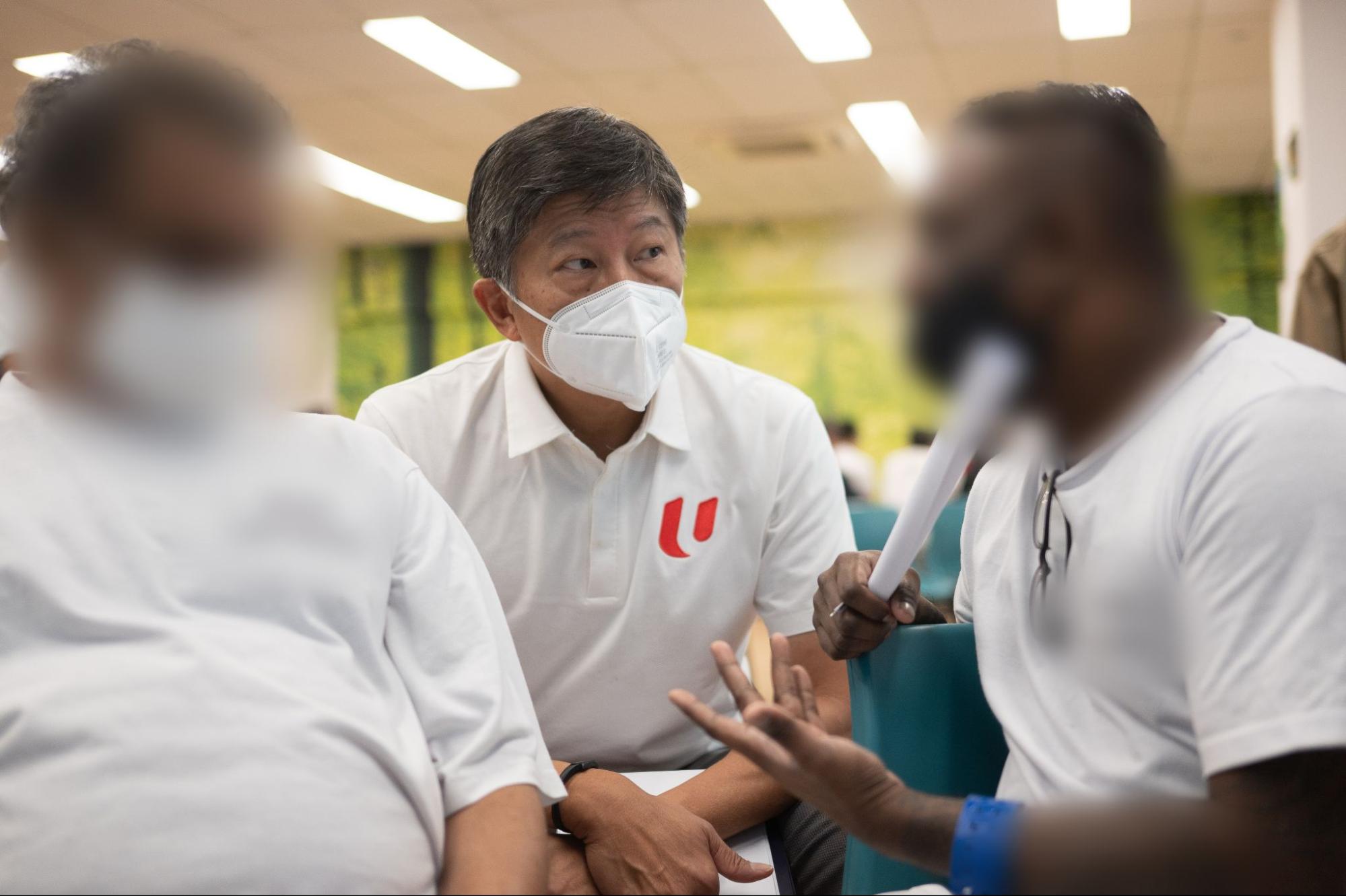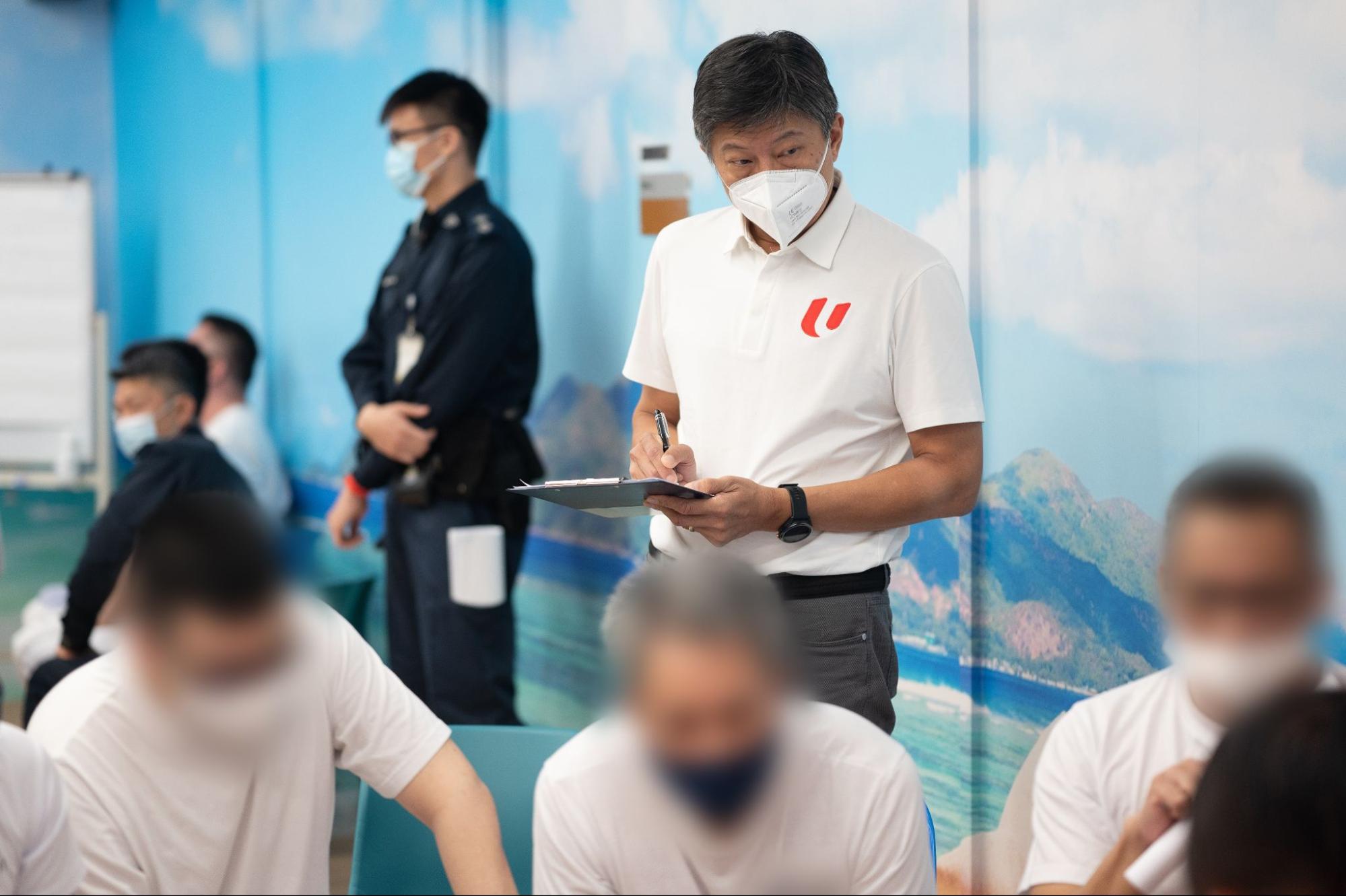Inmates Share Worries About Workplace Discrimination In NTUC #EveryWorkerMatters Conversations Sessions
Thanks to the Channel NewsAsia (CNA) documentary ‘Inside Maximum Security’, everyday people who’ve never had to serve time have a clearer idea of how tough prison life can be.
However, it doesn’t necessarily get easier for an ex-convict once they’re released. Reintegrating into society can be challenging, not to mention the prejudice they may face from others, including employers.
In August last year, NTUC launched #EveryWorkerMatters Conversations, a public engagement exercise that aims to better understand workers’ needs through surveys, dialogues, and discussions.
Inmates were recently invited to share their thoughts as well.

Image courtesy of NTUC
Through several meetings, they voiced their concerns about experiencing discrimination in the workplace or hiring practices, among other issues.
Former inmates tell NTUC they still face discrimination at work
On 9 Mar, NTUC, Yellow Ribbon Singapore (YRSG), and the Singapore Prison Service (SPS) concluded three #EveryWorkerMatters Conversations engagement sessions.
About 200 participants were in attendance.

NTUC Secretary-General Ng Chee Meng at the 9 Mar session
Image courtesy of NTUC
The first session was held on 13 Jan and involved close to 140 ex-offenders, employers, aftercare partners, and union representatives.
The following two took place at Changi Prison Complex on 13 Feb and 9 Mar with over 50 inmates.
According to attendees at the first session, ex-offenders are still subjected to discrimination when it comes to finding a job or within the workplace itself.
While things are slowly improving with more employers becoming open to hiring former convicts, much can still be done to create a more understanding and inclusive work environment.

Image courtesy of NTUC
Similarly, participants in the second and third sessions admitted they were anxious about facing workplace discrimination even after cleaning up their act.
Inmates seek on-the-job training & holistic support
In addition, inmates would like more on-the-job training support, which would greatly help them to adjust to their new roles after being away from the workplace for so long.
While pre-release training and job placement support are now more accessible to inmates, there may be a delay between receiving certification and starting work.
This is why many need help applying their newly acquired skills in a job setting. Hence, one participant suggested a chance to “stay in touch” with what they’ve learnt even after getting certified.

NTUC Assistant Secretary-General Patrick Tay at the 13 Feb session
Image courtesy of NTUC
Outside of employment matters, lowering the risk of re-offending and ending up behind bars again is also extremely important.
The key to achieving this, inmates noted, would include holistic support in several areas, including:
- Accommodation
- Mentoring
- Financial planning
- Family support
NTUC will support inmates’ transition back to work
All this feedback will go a long way in helping NTUC and other organisations to strengthen their employment and employability support for former inmates’ successful transition back into society.
NTUC Secretary-General Ng Chee Meng, who attended the #EveryWorkerMatters Conversations session on 9 Mar, said when they launched the campaign last year, they made a commitment to break new ground and engage as many worker groups as possible.

Image courtesy of NTUC
The fact that they’ve reached out to ex-convicts, inmates, as well as employers and aftercare partners “exemplifies” this commitment, he wrote in a Facebook post, adding in a separate statement,
Our efforts will not stop here, and we will work towards better training and work outcomes for this group of vulnerable workers.
NTUC Assistant Secretary-General Patrick Tay reiterated this in his opening speeches at all three sessions.
He stressed that NTUC LearningHub (LHUB) and NTUC’s Employment and Employability Institute (e2i), together with YRSG and SPS, will keep supporting former convicts returning to the workplace.

Image courtesy of NTUC
Helping inmates secure a job upon their release is one thing.
Mr Tay also brought up longer-term challenges that need to be addressed, namely job retention, career progression for ex-offenders, and expanding the pool of inclusive employers. He said,
This begins with fair employment practices, which we will continue to push for all segments of workers, ex-offenders included.
In his Facebook post, he stressed that cultivating a fair, inclusive, and progressive workplace is the responsibility of not just NTUC, YRSG, and SPS, but society as a whole.
NTUC offers inmates training & placement opportunities
Putting these words into action, LHUB and YRSG have teamed up to provide training to ex-convicts since 2007.
Last July, they introduced a coding fundamentals programme to increase both former and current inmates’ digital literacy skills to prepare them for future employment.
On the other hand, e2i and its partners are doing their part by offering career resources — such as coaching, job-matching services, and employability workshops — to ex-offenders, so they’re ready to take on job interviews.

Source: Patrick Tay on Facebook
They are one of the latest groups NTUC has spoken to since #EveryWorkerMatters Conversations was launched. And they will continue to do so, with the next session happening later this week.
For more information on the campaign and upcoming events or to share your thoughts and feedback on the workplace in Singapore, visit the official website here.
A chance to rise after falling down
When we think of prison inmates, it’s easy to conjure up a stereotypical image of a bad guy who deserves no redemption due to his tainted past.
But as ‘Inside Maximum Security’ also taught us, ultimately, most of them are just human beings who made mistakes due to circumstances or mixing with the wrong crew.
And they can also change for the better — after all, some of the greatest redemption arcs in stories were only possible because someone decided to give the antagonist a second chance.
Besides, we can all benefit from a more understanding and inclusive society.
This post was brought to you in collaboration with NTUC.
Featured image courtesy of NTUC.









